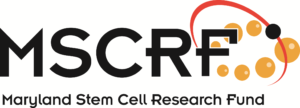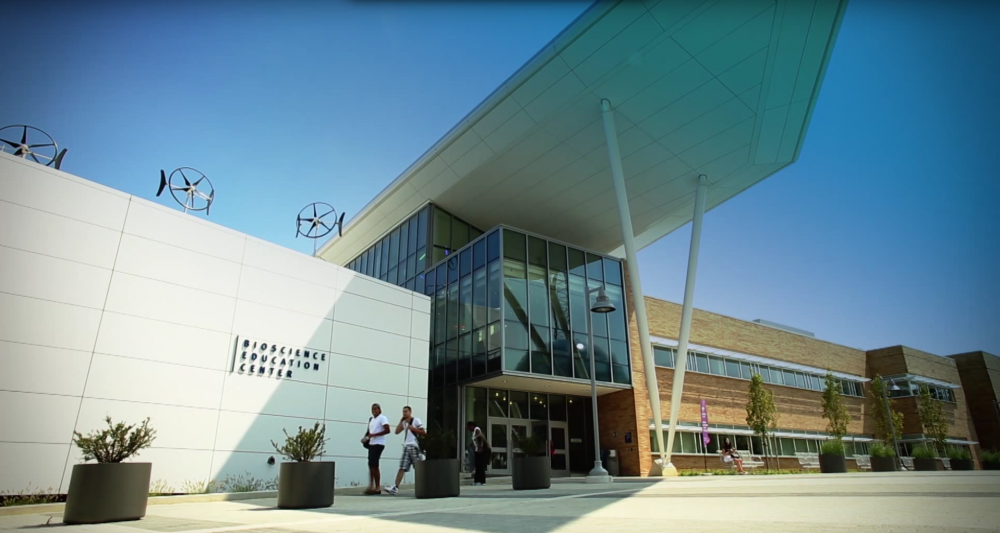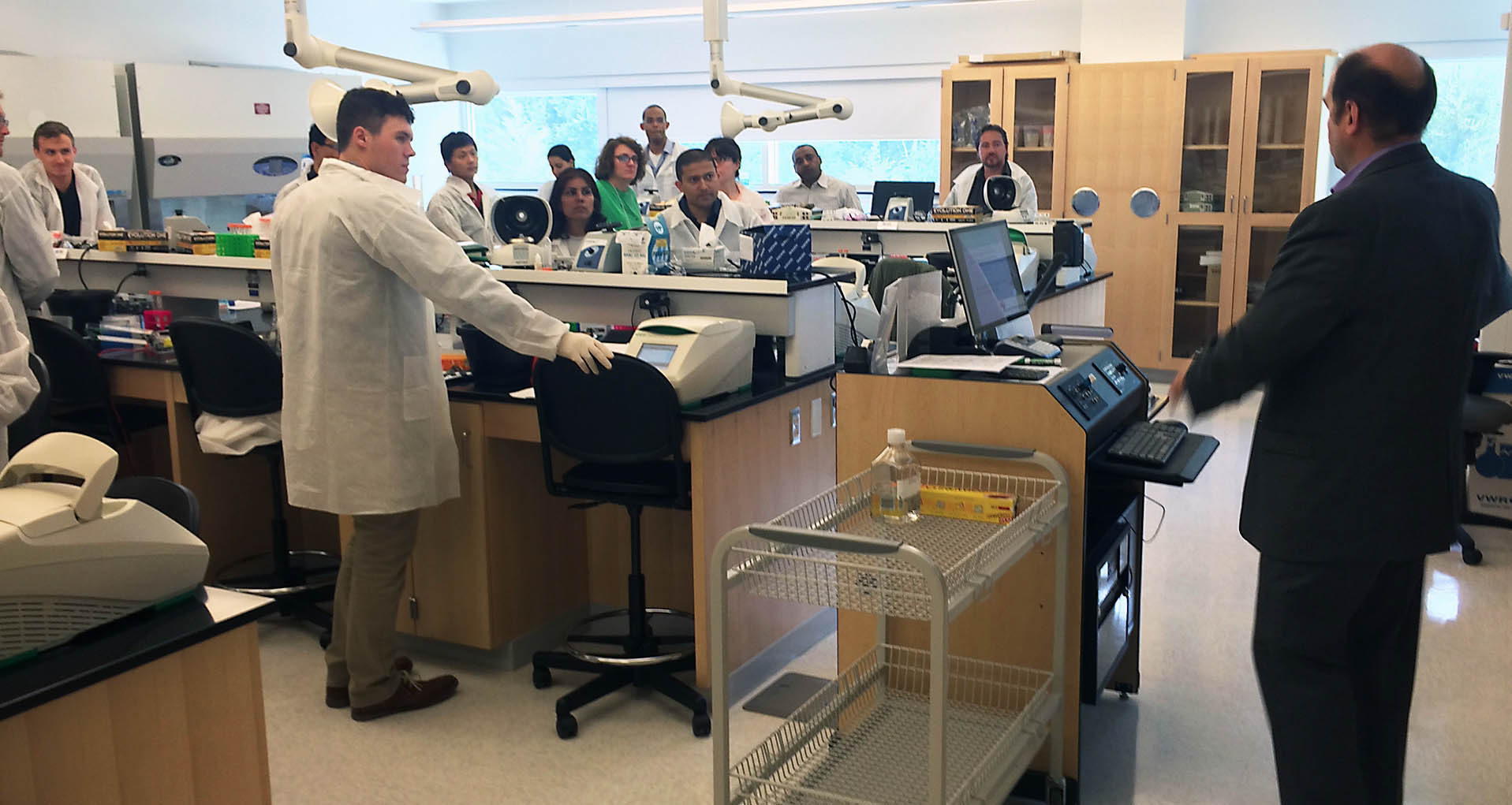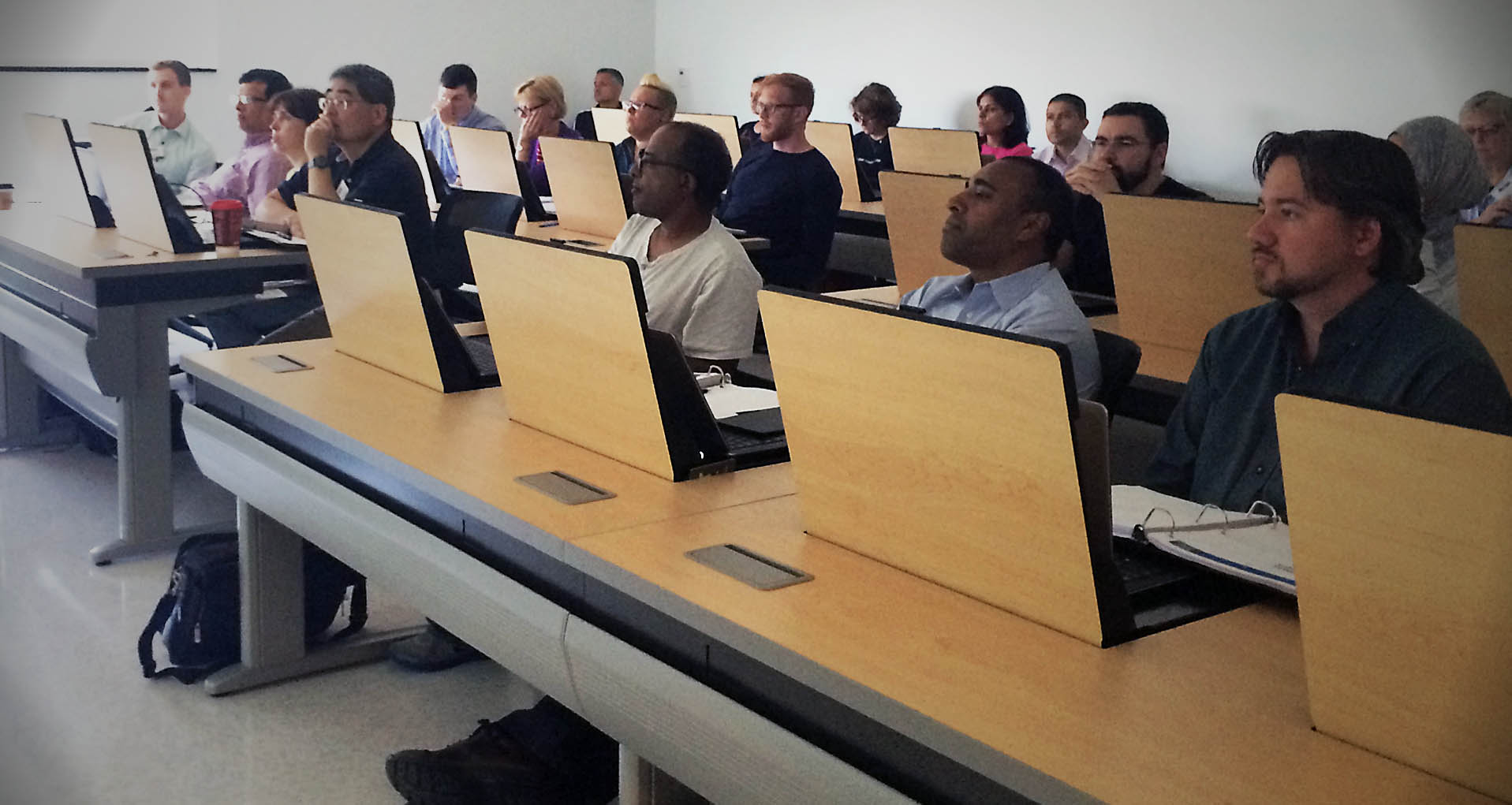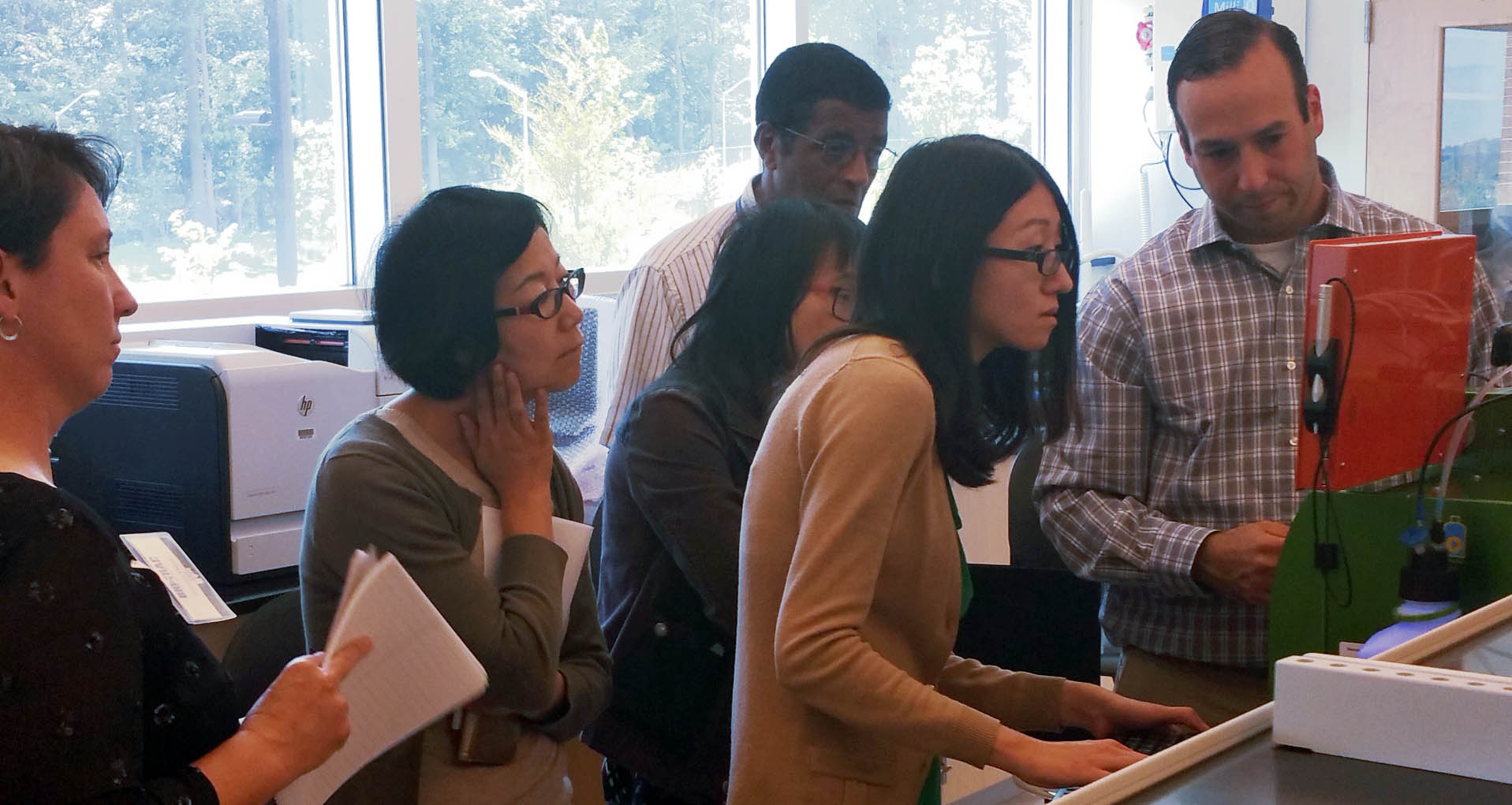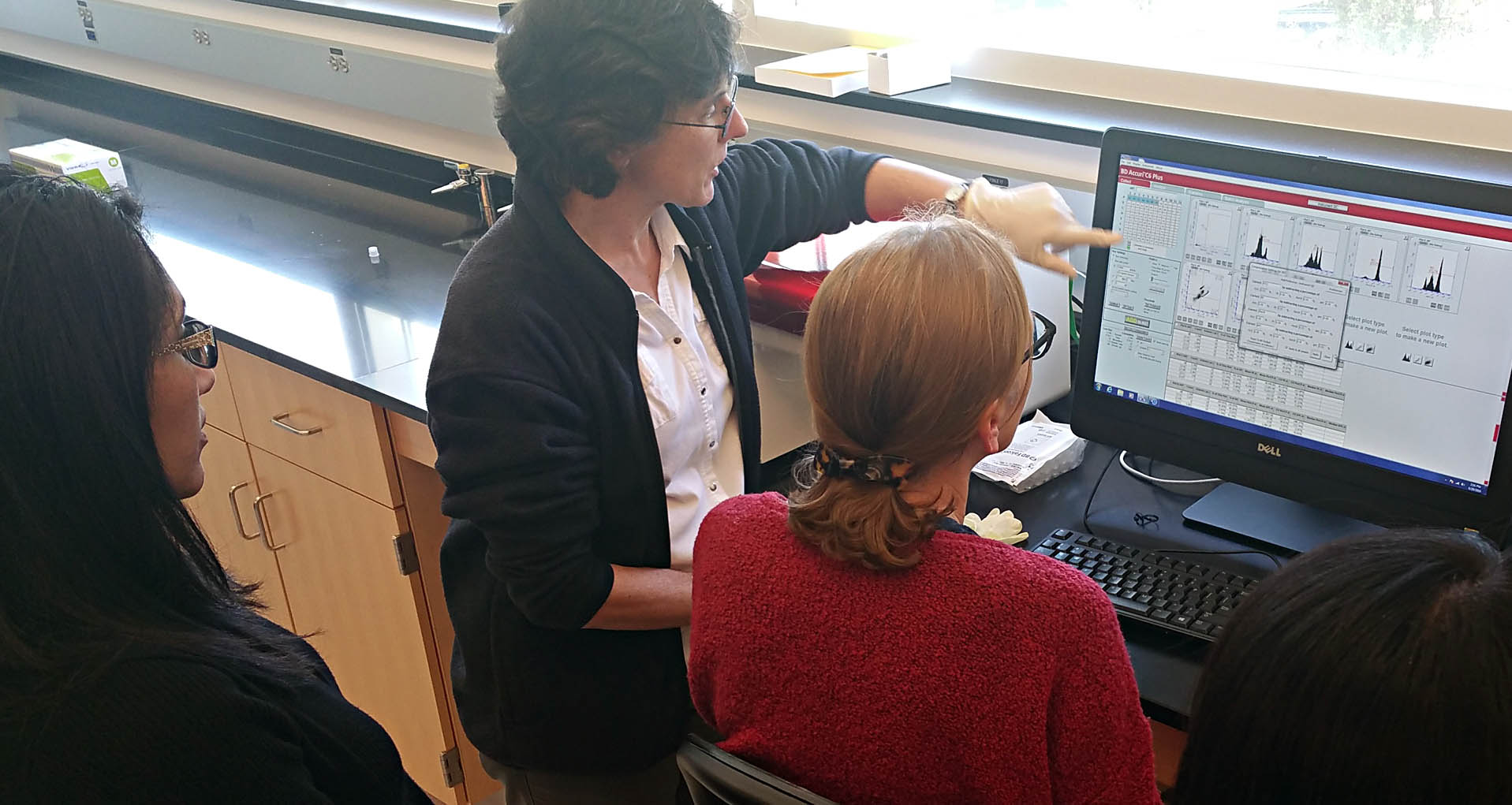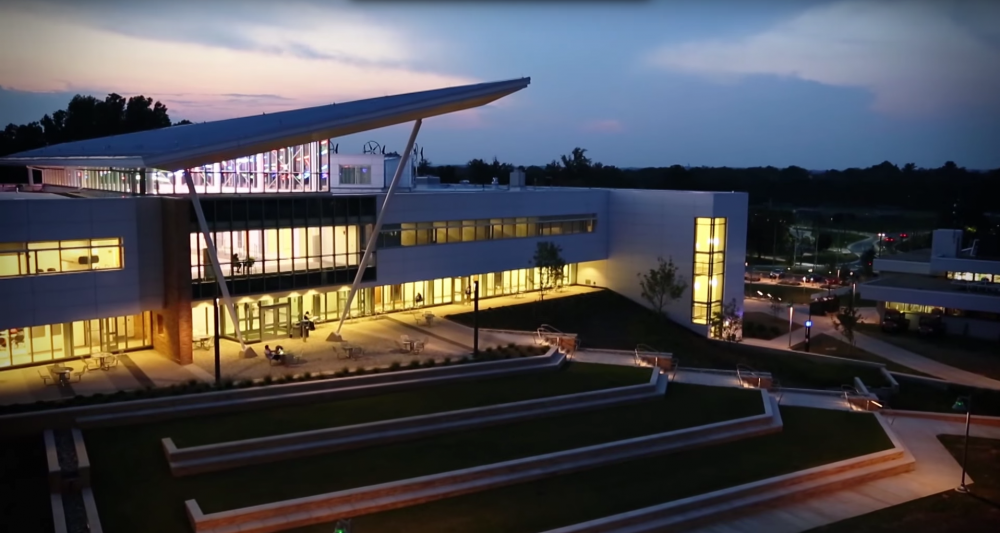July 11-13, 2018
Wednesday-Friday
Germantown, MD
The Bioscience Education Center
9:00am-5:00pm
1 Hour Lunch Break
This rigorous three day program is ideal for basic research and translational biology scientists who are looking for a balanced theoretical vs. hands-on introduction to gene editing iPSCs and NSCs using CRISPR/Cas9. In this workshop, participants will be able to design CRISPR/Cas9 gene editing tools, deliver gene-editing tools into human iPSCs and NSCs, and detect gene-editing events by PCR/ Surveyor Assay.
 | Lecture and Hands-on Interactive Training |
 | Team taught by active researchers |
 | Thumbnail drive with Lectures and Workshop material |
 | Space limited to 18 participants |
 | Registration Fee: $895 |
-
"The three day workshop on gene editing iPSCs with CRISPR/Cas9 contained all necessary information to start using this very powerful technique."
David Shubert, Ph.D.
Department of Pharmacology and Toxicology, Assistant Dean Biomedical Undergraduate Education; Lecturer
University at Buffalo
Gene Editing iPSCs with CRISPR/Cas9 1/17
-
"Courses such as the 'Gene Editing iPSCs with CRISPR/Cas9' are essential if scientists and technologists want to keep up with the evolving genetic engineering technologies. In three days you leave with enough training information to build upon a backbone of knowledge that you didn’t have before! As a bonus, everyone is helpful and kind!"
Uzma Hussain
Johns Hopkins University
Gene Editing iPSCs with CRISPR/Cas9 1/17
-
"Highly informative course given by highly competent leaders very recommendable!"
Raed Abu Dawud, Ph.D.
Scientist
King Faisal Specialist Hospital and Research Centre, Saudi Arabia
Gene Editing iPSCs with CRISPR/Cas9 1/17
-
"By nature it was short and intense, yet it proved comprehensive and satisfying. Provided valuable hands-on lab experiences as well. Highly recommend and I look forward to other course offerings."
Jeffrey Stinson
Uniformed Services University for the Health Sciences (USUHS)
iPSC: Reprogramming, Differentiation and Gene Editing with CRISPR 8/16
-
"This is a very informative workshop. I came to learn the practical aspects of iPSC science and CRISPR technology, and I am very pleased to obtain the necessary information, which is impossible to obtain without talking to scientists involved in this field. Further, I got to learn new techniques and know fellow scientists who are involved in this research to some extent."
Shyamal K. Roy, Ph.D.
Dept. of OBGYN
University of Nebraska Medical Center
iPSC: Reprogramming, Differentiation and Gene Editing with CRISPR 8/16
-
"This is a very well organized program. Lectures always convey the most advanced knowledge and technologies. Hands-on practice is also very helpful. Highly recommend to colleagues in or out of NIH community."
Guangpu Shi, M.D.
Research Fellow
NEI/NIH
iPSC: Reprogramming, Differentiation and Gene Editing with CRISPR 8/16
-
"An excellent training course. I like the lab activities which gave lots of practice. The instructors are well-skilled and kind. The lab condition is perfect! It was also a good opportunity to know each other in the field. Thank you very much. I will take more courses in the future. I also will recommend people to take the courses at Bio-Trac."
Bingmei Zhu
Postdoctoral Fellow
NIDDK and Sichuan University, China
iPSC: Reprogramming, Differentiation and Gene Editing with CRISPR 8/16
-
"A busy and informative three days. Hopefully I can take what I learned back to my lab and have success there."
Paul Ryan
Consultant Biologist
ELI Lilly
Gene Editing iPSCs with CRISPR/Cas9 1/17
Course Co-Director
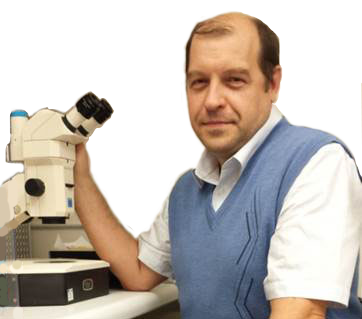
Serguei Kozlov, PhD, MBA, PM
Team Leader, Principal Scientist and Program Manager, Center for Advanced Preclinical Research, Leidos Biomedical Research, Inc
Course Co-Director
James Kehler VMD, PhD
Director of Scientific Alliances, MTI-GlobalStem
Lectures:
- Basic Principles of Genome Editing Technologies from ZFN to CRISPR
- Special Aspects of CRISPR/Cas9 Technology
- Structural Aspects of CRISPR/Cas9 Target Recognition and Biologic Patterns Among the Family of Bacterial Targeted Endonucleases
- Dichotomy of Alternative Mechanisms for Double Stranded DNA Break Repair and How They Can Be Manipulated to Benefit the Desired Outcomes of a CRISPR/Cas9 Experiment
- CRISPR vs. RNAi Technologies: Strengths, Weaknesses, Opportunities, Future Prospects
- Optimizing Gene-editing Experimental Designs for iPS and NS Cells
Laboratory 1:
- In Silico Design of guide RNAs (crRNA and sgRNA)
- Optimized design of CRISPR/Cas9 systems for genome editing: analysis of representative cases
Laboratory 2:
- Transfection of iPS and NS cells with CRISPR/Cas9 reagents:
- Part 1: Coat plates and make media
- Part 2: Set-up Cas9 mRNA/crRNA:tracrRNA ribonucleoprotein complexes for transfection
- Part 3: Harvest, replate and transfect iPSCs and NSCs
- Part 4: Re-plate and Transfect iPSC in suspension
- Molecular synthesis of sgRNAs: annealing of crRNA encoding dsDNA oligonucleotide duplexes for cloning into pX330 vector
- Molecular synthesis of sgRNAs: ligation of annealed DNA duplexes into pX330 vector and bacterial transformation
Lectures:
- Development of In Vitro Models via CRISPR Genome Editing
- Application of CRISPR/Cas9 for Genome Editing in Pluripotent Stem Cells
Laboratory 3:
- Review transfection efficiency by epifluorescence
Laboratory 4:
- Review transfection efficiency of iPSC and NSC cultures under epifluorescent microscope
- Harvest transfected iPSCs and NSCs and perform single-cell cloning
Laboratory 5:
- Discussion Genomic Cleavage Detection Assay: Basic Principle and Workflow
- Genomic Cleavage Detection Assay- Part1: Lyse iPSCs and NSCs and set-up PCR Reaction
Lectures:
- Applications of dCas9 nucleases and disease modelling with CRISPR/Cas9 systems
- iPS and NS cells in tissue engineering and other clinical applications
- iPSC technology to enable drug screening and preclinical evaluation
Laboratory 6:
- Assessment of pluripotency in iPSC cultures by live Tra-1-81 staining
- Genomic Cleavage Detection Assay:
- Part 2: Re-Annealing Step
- Part 3: Digestion Step
- Part 4: Agarose Gel Electrophoresis to determine the incidence and estimate frequency of indel mutagenesis
- Analyze the Outcomes of PCR Test
- Molecular synthesis of sgRNAs: Purify sgRNA and assess its quality by Tape Station and BioAnalyzer tests
- Purification and agarose gel analysis of sgRNA-pX330 plasmid DNAs
Course Co-Director
Serguei Kozlov, PhD, MBA, PM
Dr. Kozlov received his Master of Science diploma in applied mathematics and theoretical physics from Moscow Institute of Physics and Technology in Russia, subsequently earning a PhD degree in molecular genetics and neurobiology from the Institute of Biochemistry, University of Zurich, Switzerland. He subsequently received a Master of Business Administration degree from Robert Smith School of Business, University of Maryland and also holds several other professional certifications and credentials.
Dr. Kozlov joined the National Cancer Institute in 1999 as a postdoctoral fellow in Cancer and Developmental Biology lab where he was promoted in 2003 to senior research fellow and subsequently in 2007 to the staff scientist appointment. In 2008 he joined SAIC Inc. (later renamed to Leidos BMR, Inc.) where he established Center for Advanced Preclinical Research – a translational resource providing interdisciplinary support and expertise in establishing next-generation animal cancer models, developing technologies for advanced manipulation of mammalian genomes for the purpose of preclinical modeling, and directing early stage drug development projects to accelerate clinical introduction of promising efficacious cancer therapeutics.
--
Course Co-Director
James Kehler VMD, PhD is a comparative stem cell biologist who thrives on developing productive collaborations to translate scientific discoveries into transformative products. He trained at the University of Pennsylvania, where he received his VMD in 2002, and PhD in Cell and Molecular Biology in 2004. James has worked as a visiting researcher at the National Institutes of Health for over 10 years, where he and his collaborators at NEI, NCI, NINDS, NIDDK and NIAAA developed animal and stem cell-based models of human diseases. He has run workshops on reprogramming both at the NIH, as well as internationally. James has worked and consulted for several stem cell companies from product development and management to directing custom reprogramming and gene-editing services. James recently joined MTI-GlobalStem, as Director of Scientific Alliances to foster collaborative research projects with academic, biotech and pharmaceutical partners.

